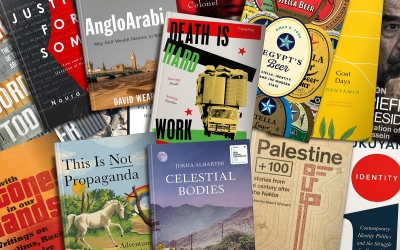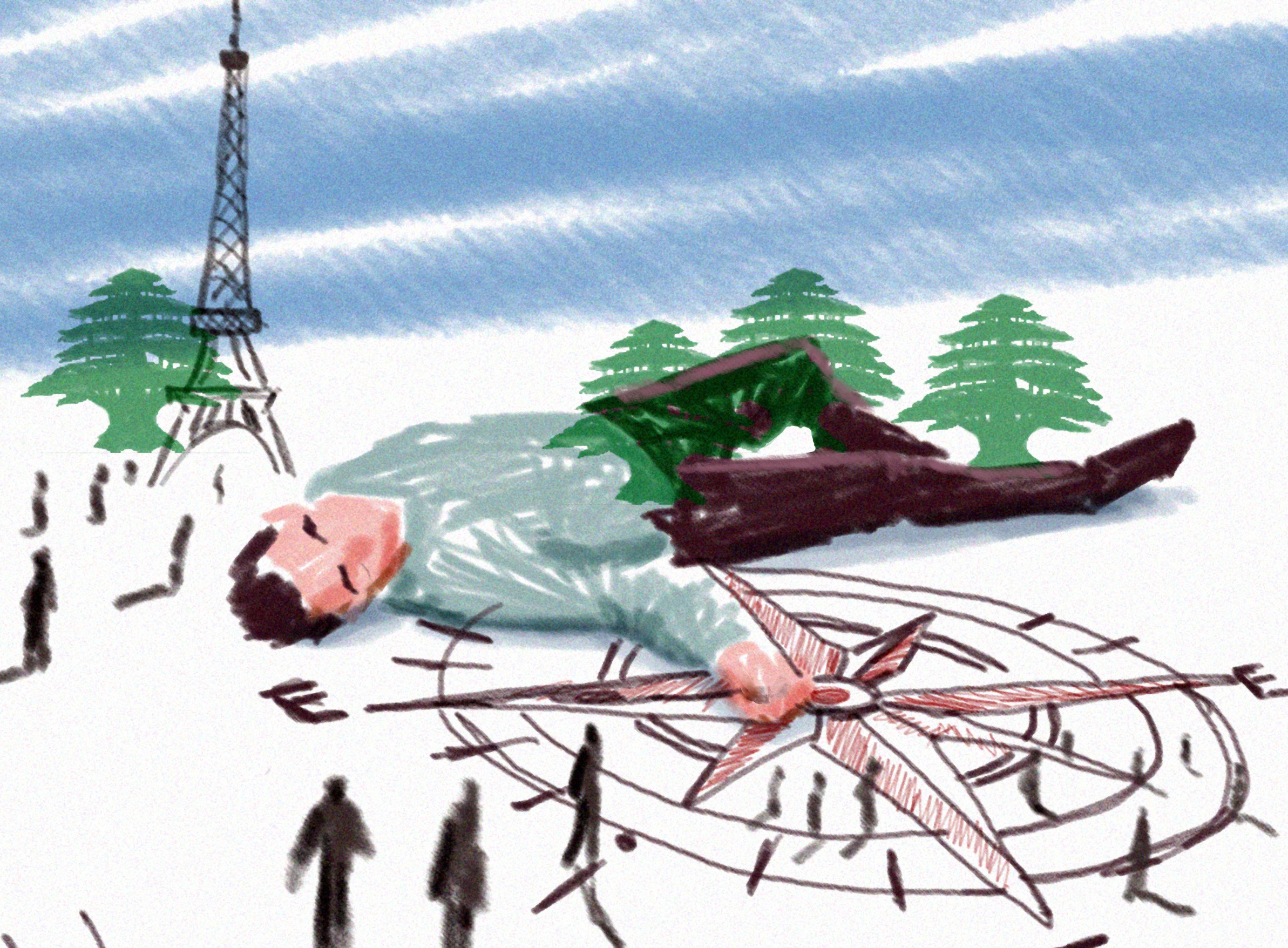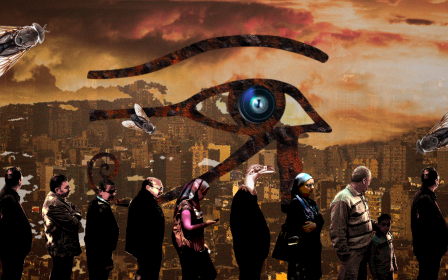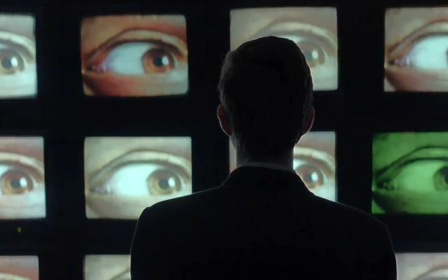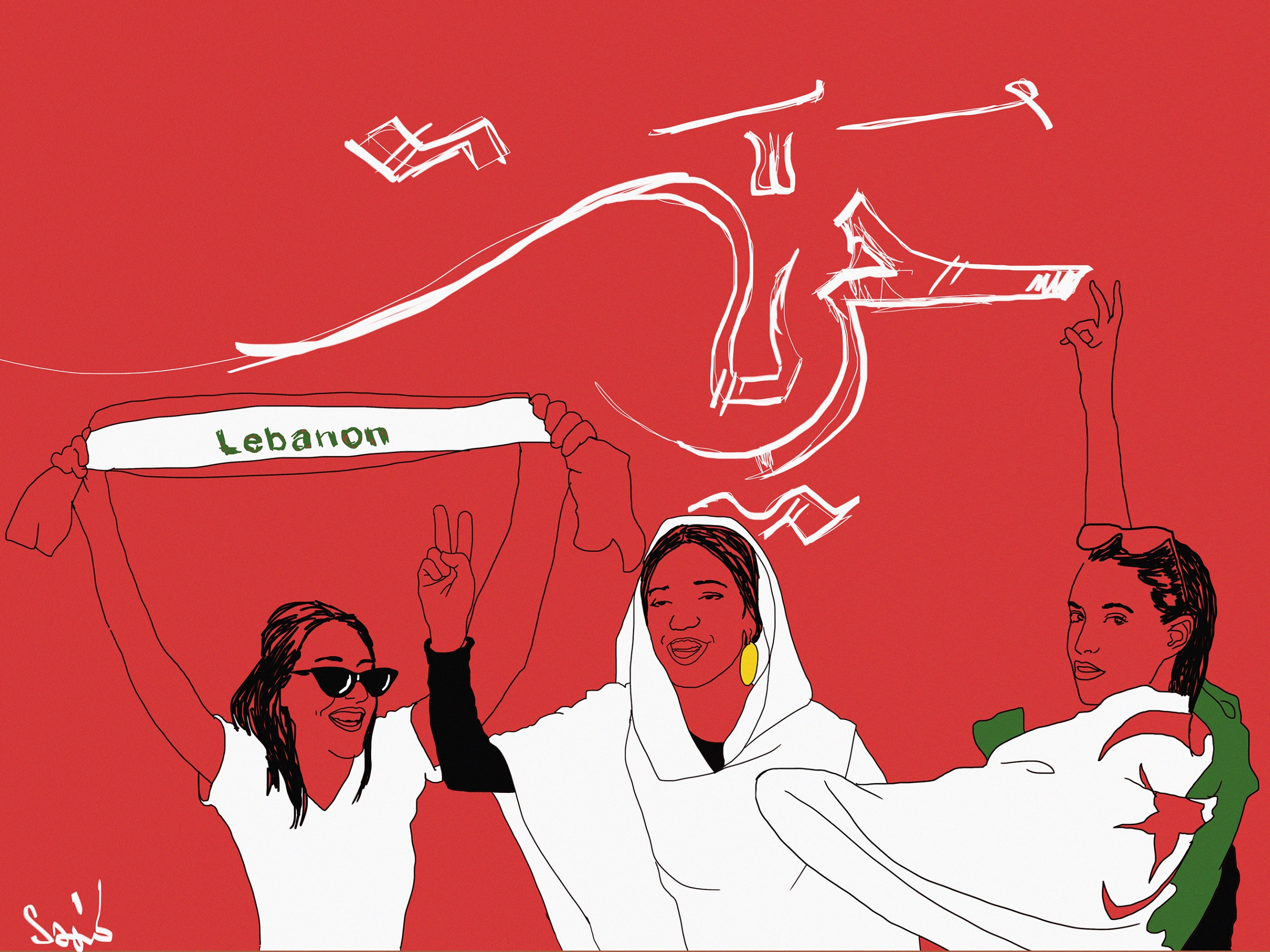
Dead tyrants, foiled dreams and failed states: How Arab literature captures the spirit of the times
What is happening in the Arab world, in countries such as Algeria, Sudan and Lebanon? Is it a revolution that portends better times, or a mere passing cloud in a tenacious sky that perpetuates the existing balance of power?
Unfortunately, while we are subjected to an endless flow of social media images showing us what is happening in this part of the world, we cannot rely on social sciences to understand why things are happening, or how to ensure they won’t happen again.
The continuous acceleration of social change, to borrow German sociologist Hartmut Rosa’s argument, makes it impossible for us to trace the problems to a single phenomenon, blurring our vision of past and future. Only literature can better capture the mood of Arab societies, unweaving the narratives of their peoples and conveying their aspirations.
Demise of literary heroism
Literature, however, does not seem capable of standing its ground in the age of digital communication and endless information. Gone are the days when Arab readers would rally around or against one writer, or identify themselves with a poetic expression to designate the path of action. The digital age has brought about the demise of literary heroism. With the triumph of digital communication, writing is no longer the privilege of the talented few.
New MEE newsletter: Jerusalem Dispatch
Sign up to get the latest insights and analysis on Israel-Palestine, alongside Turkey Unpacked and other MEE newsletters
It requires a perspicacious reader to identify works of literature that stand out above the masses. With the profusion of texts on the web, readers feel the urge to browse, while losing the habit of reading long literary texts. No wonder some of the best and most pertinent novels on the Arab context go unnoticed, from Walid Saif’s Multaqa al-Barhain (Where the Two Seas Meet), to Amin Maalouf’s Les Desorientes (The Disoriented), to Yasmina Khadra’s Qu’attendent Les Singes (What are the Monkeys Waiting for?).
What unites the three novelists - beyond the difference in language - is an unmistakable craving for the art of narration, a certain kind of cultural passion for oral storytelling that is still common in the Arab world. Despite all shades of narrative style, their novels betray a belief that the Arab world is history; it does not make history, and consequently cannot yield any type of heroism.
Saif does not conceal his disdain for the present Arab reality, placing his main characters in a bygone historical setting. The Arab world is dismissed from the outset as being mediaeval, crawling with sultans, slavers, captives and maidens. The reader is given to think that without the backdrop of the Dark Ages, it would not be possible to shape the profile of the characters and antagonists, nor to grasp the nature of the plotting.
It is not far-fetched to conclude that the main message behind Saif’s novel is that cultural survival from the pre-modern era is the primary constituent of the current Arab reality, testifying to the decay and loss of Arab societies.
Battle for power and control
Behind the subtlety of words and elegance of style, Saif’s novel reveals an unhealthy relationship between a sultan whose privilege and right is to order and command, a captive maiden whose duty is to obey, and a scholar intent on fomenting revolution. The story might be a reference to the hideous condition of a society in which the forces of despotism and enlightenment vie for power and control over the souls and bodies of the people.
The ideal of merging these three entities into a harmonious unity seems unattainable at first glance. Yet, as events unfold, the feeling grows that a historical symbiosis is possible. The beautiful captive maiden, who stands for the people, succeeds in convincing both the sultan - her master and father of her future child - and the scholar, her lover, of the need for common action.
Every word, sentence, metaphor, monologue and dialogue contributes to conjuring up such a mystical union, which is badly needed in the Arab world today
Hope reaches its apotheosis when the scholar, after becoming disillusioned about the future of revolution, sets off on a journey through a desolate land to reconcile himself with the sultan. The captive, who in the meantime has become the sultan’s beloved one, cannot but delight at the prospect of such a reconciliation, dreaming of a future world in which political power and the power of enlightenment coordinate efforts for societal peace and prosperity.
Every word, sentence, metaphor, monologue and dialogue contributes to conjuring up such a mystical union, which is badly needed in the Arab world today.
Unfortunately, these cherished prospects sound too good to be true. Everything around the captive maiden starts crumbling to pieces. First, the scholar - with whom she entertained the hope of a revolution that would ameliorate the conditions of society - falls victim to perfidious murderers, who decapitate him and bring his head to the castle in hopes of ingratiating themselves to the sultan. Then the sultan dies, killed in a fight against a group of mutineers.
While fleeing the city with the sultan’s child in her womb and grief in her bosom, the maiden is asked by a faithful servant and companion about their destination. “We will know it once we have reached it,” she says.
A world in shambles
Behind this answer is a glimpse of a new Arab world in which hopes for a better tomorrow - where rulers work in concert with enlightened elites for the welfare and security of their people - have given way to fear and disarray. The death of both the sultan and the scholar brings about loss of destination and loss of control over destiny. It is a world in shambles.
This vision of a lost Arab society is also brilliantly conjured up in Maalouf’s novel, which views the conflicts that have racked Arab societies, especially Lebanon, from the perspective of a historian in exile. With the benefit of historical hindsight and geographical distance, the narrator Adam can indulge in the expression of a wide variety of situations, relations and emotions otherwise difficult to put into words.
Blending feelings of love, hate, friendship and betrayal, he preserves the idea of a factional world given over to irresponsibility and unaccountability, along with an incurably strong emotional longing for past moments of peaceful coexistence, when the accommodation of “otherness” was possible.
Adam’s fate is suspended between life and death, “just like his country, like the whole planet, and like all of us who continue to live on borrowed time”, says Dolores, who is constantly at his bedside. In a hypothetical epilogue that Adam might have composed in his mind before the car accident that left him in a coma, there is a vague reference to “delight in levantine delicacy and serene tenderness”, “a rediscovered appetite for life” and “reasons to pursue the fight”.
Yet, the meaning behind these words won’t be known for certain unless Adam regains consciousness. Despite the modicum of hope supplied in his epilogue, he cannot claim heroism.
Message of truth
Even more captivating than the story and fate of the Lebanese expatriate Adam are the correspondences and conversations between his childhood friends. Through them, Maalouf reveals the existing factional rifts, the insurmountable clash of beliefs and the heated debates within a wounded Lebanese society. In perhaps the most captivating, thought-provoking passage, Maalouf offers an overarching message of truth.
To a question about “why faith occupies a big place in this region of the world”, Maalouf answers through the words of one of his characters that such a statement is only a myth, and that the truth is exactly the contrary: “Here, in the Levant, we don’t care about beliefs, but rather about belonging.”
Maalouf succeeds in translating the impressions gathered during Adam’s visit to his childhood country, into unprecedented insights into the reality of the Arab world. Contrary to the commonly asserted belief that spirituality is the fulcrum of Middle Eastern societies, belonging is featured as the element that takes precedence over belief.
Maalouf’s novel thus opens the way to the introduction of radically new attitudes, calling into question the validity of Middle Easterners’ self-perception as a strong spiritual entity. It enhances the impression of things falling apart, raising awareness of the necessity to criticise the dominant forms of religiosity in the Arab world as an important step to escape the current deadlock.
Paper tigers
Khadra’s novel, meanwhile, is set in today’s Algeria, under the rule of a despotism that ignores even how it came into being. In a reply to a young inspector’s rebuke over a serious injustice inflicted on innocent people, Haj Saad Hamerlaine, the almighty old tyrant, says: “It is no one’s mistake; we are only what the others want us to be … I didn’t ask to become a despot.”
In an attempt to absolve himself of moral responsibility, he adopts a line of defence that reduces tyranny and despotism to a mere matter of hierarchy. “There has never been a tyrant, inspector,” says the old despot. “Tyrants are only the hallucinogenic effect of our small and big acts of cowardice.”
When the old despot strives to free himself from the grip of the inspector, the latter hits him in the face with the flat side of a shovel. Despotism is now submitted to the same humiliation to which it used to submit others. The inspector reminds Hamerlaine: “The world functions according to a vulgar balance of power. The master of the situation is the cudgel, not the one who holds it.” And in the name of all Algerians, he pierces the heart of the despot, of despotism.
In Khadra’s novel, despotism is portrayed as a paper tiger. It does not take much to discover how its fearsome power is a mere outward appearance. The title suggests that an act of daring, of courage, could reveal the weakness of tyranny, and that wiping it off the face of earth is the only worthwhile decision to take.
After the killing of Hamerlaine, the inspector feels a burning in his lower belly, and ultimately realises it is an erection. After a long period of overwhelming despair and depression, he has recovered his virility and become a man again - “healed, a whole, and alive”.
Beyond the Arab Renaissance
The instigative tone of Khadra’s novel provokes oppressed people to reconsider the balance of power between despotism and the need for freedom. In light of recent developments in Algeria, it presents a crucial step towards overcoming the strongholds of fear, and a precursor to a new heroism.
Acclaimed as capable of incarnating the voice of a generation reduced to silence by despotism, Khadra’s literary masterpiece testifies to the power of a new type of literature, capable of picking up where Arab Renaissance projects left off.
The same can be said of the novels by Saif and Maalouf. The exquisiteness and the delicacy of ideas expressed in these novels open a new mindscape, one freed from the hegemonic discourses of both “Zeropean” and passeist ideologies. It offers us a spectacle of our weaknesses, failures, foiled dreams, missed opportunities, unheroic deeds, failed states, dead tyrants and frustrated reformers. In so doing, it spurs Arab readers into acceptance of themselves as a decisive step in the path towards change.
For the new Arab society to regain its moral bearings, it must have enough poetic fervour to allow for the expression of the troubled relationship between power, reason and people
It is tempting to say that Saif, Maalouf, Khadra and other novelists of their ilk are producing a kind of literature that tends to moralise the will of their Arab readers by relating it to an increased awareness that there is no "charming" Arab story to be told to the world. They persuade us to consider giving the post-Arab-Renaissance world a foundation in the doubts that assail us today.
They tell us that in order for the new Arab society to regain its moral bearings, it must have enough poetic fervour to allow for the expression of the troubled relationship between power, reason and people; the blurred lines between believing and belonging; and the true, ugly nature of despotism.
Even when they put us face to face with our failures to meet the requirements of the spirit of the times and of the changing world, they invite us to redefine heroism - to replace ancient beliefs as the agency of change.
The views expressed in this article belong to the author and do not necessarily reflect the editorial policy of Middle East Eye.
This article is available in French on Middle East Eye French edition.
Middle East Eye delivers independent and unrivalled coverage and analysis of the Middle East, North Africa and beyond. To learn more about republishing this content and the associated fees, please fill out this form. More about MEE can be found here.




